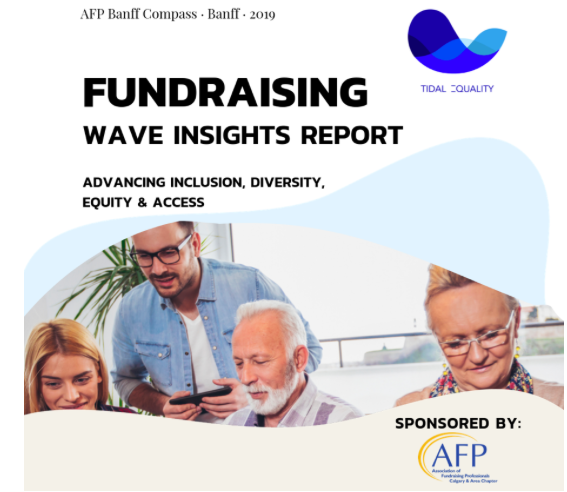- Home
- About Us
- The Team / Contact Us
- Books and Resources
- Privacy Policy
- Nonprofit Employer of Choice Award

 Canadian society is evolving at a rapid rate. Charitable organizations and approaches to fundraising need to keep up with the times. The increasing diversity and multiculturalism of our nation is reflected in the people, communities, and causes charitable and non-profit organizations serve, as well as in potential and existing donor populations.
Canadian society is evolving at a rapid rate. Charitable organizations and approaches to fundraising need to keep up with the times. The increasing diversity and multiculturalism of our nation is reflected in the people, communities, and causes charitable and non-profit organizations serve, as well as in potential and existing donor populations.
Given this dynamic landscape, it’s a critical time in our trajectory as fundraisers to ask ourselves a series of important questions. For example, how well equipped are we as a profession to meet the needs of diverse and multicultural communities through our charitable works and our approaches to fundraising? Is our profession a place where equality of opportunity really thrives and where all have an equal shot at a successful career? How certain are we that the work we are doing today will resonate with the changing donor population of today and tomorrow?
AFP 2018-2020 Strategic Plan calls out the promotion of inclusion, diversity, equity and access (IDEA) as a strategic priority for the organization globally, and charges local chapters with making the priority ‘real’ in their own contexts. The global Association of Fundraising Professionals recognizes the need to work harder as a profession to reflect the diverse populations fundraisers serve, and to take steps toward building a more diverse fundraising workforce.
By prioritizing IDEA-related issues, AFP has endeavoured to take a comprehensive look at expanding diversity in the profession so that fundraisers can better serve their communities and resonate with all potential donors.
Ultimately, as fundraisers, the goal of focusing on IDEA related issues is:
STRATEGIC PRIORITY COLLABORATE TO ENHANCE INCLUSION IN FUNDRAISING
Create an AFP Inclusivity Charter
Engage with higher education institutions
Let the cause drive the action
COLLABORATE TO ENGAGE A BROADER DONOR BASE
Maximize awareness about donor communities
Consult diverse donor populations
Create innovative engagement opportunities
Politically and socially, recent times are marked by divisiveness. It's our responsibility, as fundraisers, to promote unity. In order to meet the needs of current and future generations, we need to thread together as beautiful and diverse a human tapestry as possible, strengthen our resolve, and collaborate in radical new ways.
STRATEGIC PRIORITY COLLABORATE TO ILLUMINATE AND SOLVE SHARED PROBLEMS
Share expertise
Create diverse and collaborative fundraiser cohorts
Measure and reward collaborative efforts
For a full copy of this report, click here
Dr. Kristen Liesch Co-CEO (she/her) of Tidal Equality, was named in Forbes’ “10 Diversity and Inclusion Trailblazers You Need to Get Familiar With,” Kristen is a strate,gist and educator with 15 + years of experience designing transformative curricula, implementing equitable process changes, and capacity-building programs to support the design of more equitable organizations in Canada and New Zealand. Her unique academic background informs her methodology as a strategist and consultant working to advance equity. Combining practices and theories from the social sciences, education, and interdisciplinary humanities, Kristen supports leaders as they work toward cultivating more equitable, effective, and prosperous organizations.
Anna Dewar Gully, Co-CEO (she/her) of Tidal Equality, is an organizational strategist with 15 + years of experience designing enterprise-wide strategy, transformation initiatives, and expanding equality by-design in large systems and organizations in Canada and the UK. Throughout her career, Anna has guided numerous Boards of Directors, CEOs, and senior leaders through complex organizational culture, policy, governance, and strategic change initiatives. She has also coached frontline, management, and senior staff in a variety of contexts on how to successfully navigate and advance progressive change.